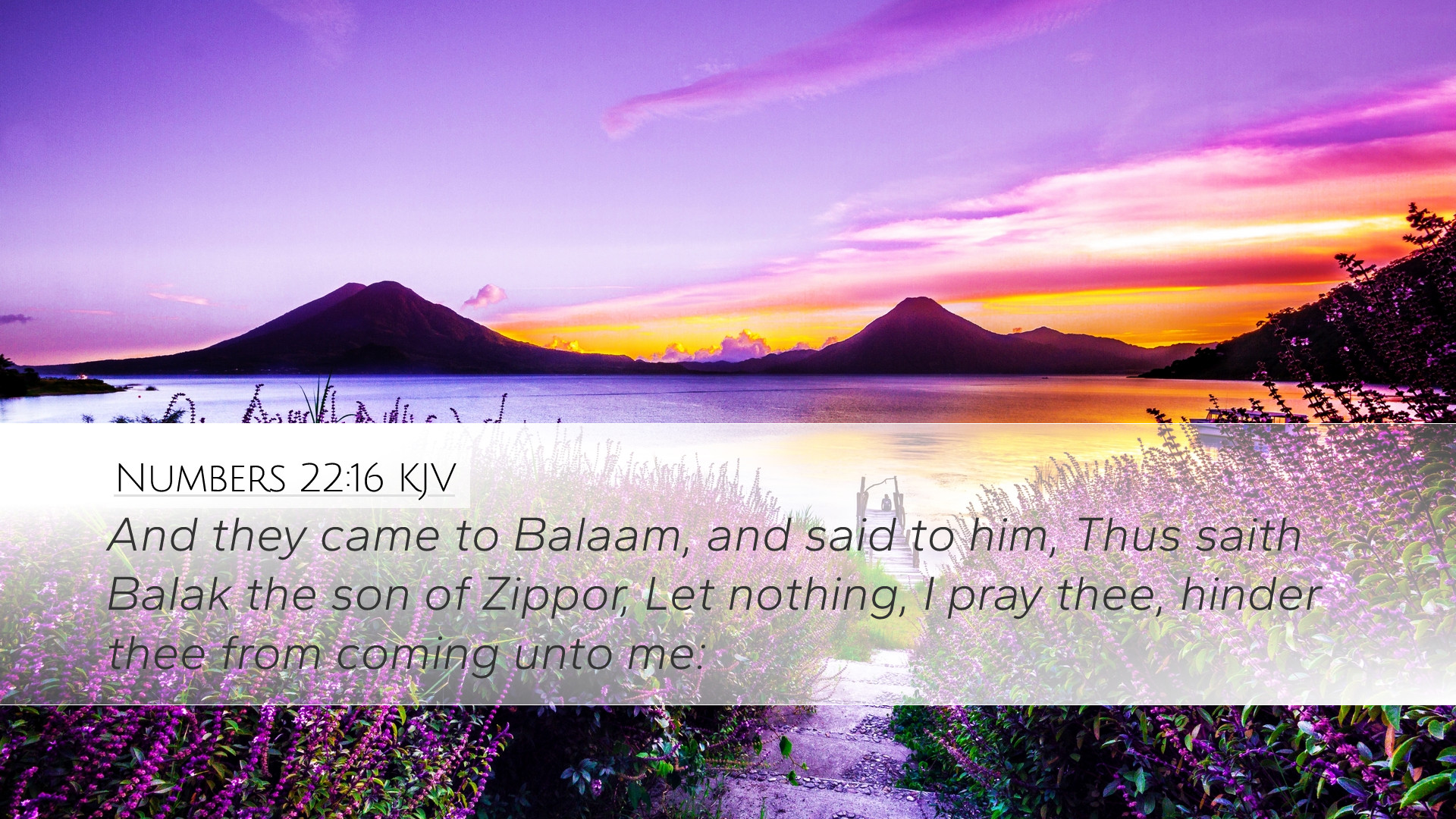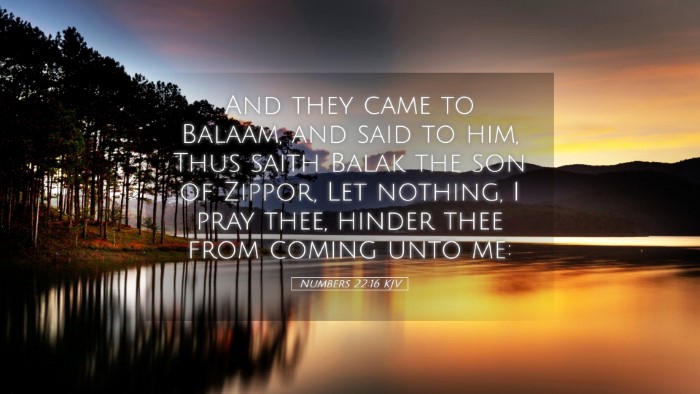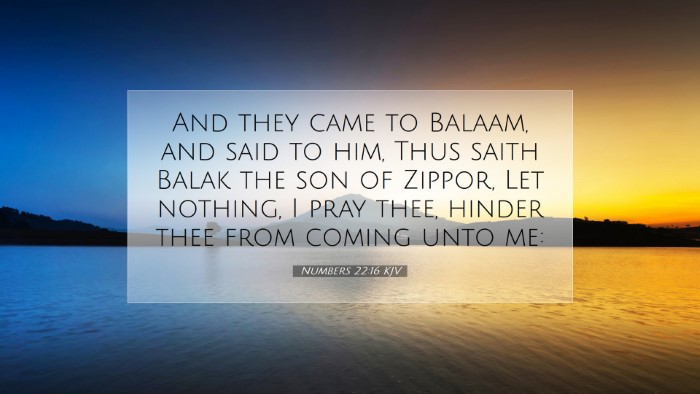Commentary on Numbers 22:16
Numbers 22:16 details a pivotal moment in the narrative of Balaam, who was summoned by King Balak of Moab to curse the people of Israel. Here, we'll explore insights from three public domain commentaries: Matthew Henry, Albert Barnes, and Adam Clarke.
Contextual Overview
The Book of Numbers chronicles the Israelites' journey through the wilderness towards the Promised Land, detailing their trials, victories, and divine guidance. Numbers 22 introduces us to the figure of Balaam, a foreign prophet whose story unfolds with intrigue and divine intervention.
Balaam's Summons
In this verse, we find the representatives of King Balak visiting Balaam with significant offerings. Each commentary highlights different aspects of this encounter:
Matthew Henry's Insights
Matthew Henry emphasizes Balaam's character as a man who had some knowledge of God yet was not aligned with His people. He points out that:
- Spiritual Blindness: Despite being sought for spiritual counsel, Balaam's heart was aligned with greed and ambition rather than God's will.
- External Influence: The request from Balak reflects the worldly temptations that believers may face, urging caution in yielding to external pressures.
Albert Barnes' Commentary
Albert Barnes focuses on the significance of the offerings presented to Balaam. He notes that:
- Symbolism of Offerings: The offerings were not merely gifts but were intended to invoke Balaam's favor, illustrating the depth of Balak's anxiety regarding Israel's presence.
- Divine Sovereignty: Barnes underscores that God’s power cannot be manipulated, regardless of the gifts or offerings presented by the enemy.
Adam Clarke's Perspective
Adam Clarke delves deeper into the motivations behind Balak's actions:
- Pagan Practices: He identifies Balak's request as rooted in pagan practices, where cursing was often believed to bring about divine retribution against one’s enemies.
- Balaam's Reputation: Clarke elaborates on Balaam’s reputation as a renowned prophet, implying that his influence could tip the balance for Balak against Israel.
Theological Reflections
The broader theological implications of Numbers 22:16 encompass multiple themes:
- The Tension Between God's Will and Human Ambition: The narrative raises questions about the motives that guide our actions in relation to God’s plans.
- Understanding Prophecy and Divine Will: Balaam's interaction with Balak reveals complexities of prophetic authority and the nature of divine messages.
- The Power of God Over Human Intentions: Ultimately, the text reassures the reader that God’s sovereignty prevails despite human schemes.
Practical Applications for Ministry
For pastors, students, and theologians, Numbers 22:16 offers meaningful insights for various contexts:
- Discernment in Leadership: Leaders must continually seek God’s direction and not be swayed by external influences or material offerings.
- Awareness of Spiritual Warfare: The story serves as a reminder of the ongoing spiritual conflict faced by believers, prompting vigilance and prayer.
- Teaching on the Nature of God: This passage allows for teaching on God's integrity, power, and the futility of opposing His will.
Conclusion
Numbers 22:16 serves as a profound text for reflection on the intersection of human ambition and divine purpose. The insights from Henry, Barnes, and Clarke not only illuminate the complexities of Balaam’s character but also challenge the reader to reflect on their alignment with God's will in their own lives and ministries.


